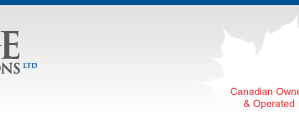


Project Manager Training Training |
|
|
This 5 day program is a hands-on development program for people who produce results through others: Project Managers, Project Leads, and Team Leads. It deals with the entire spectrum of soft skills you will require to do your job effectively. |
|

Five Day Workshop
How You Will Benefit
-
Through a process of self assessment related to each of the core competencies, identify your style, your transferable skills, and where to focus to get even better
-
By practicing the soft skills on project typical situations, you will be able to solidify your strengths and have a more complete range of options to deal with situations
-
Based on your own skill set and particular situation, you will develop a plan of action for growing the skill even more once back at work
You Will Learn
-
To identify the basic personality styles and the implications for working style, communication preferences, working in teams, delegating, and motivation
-
The right media for your message based on the audience and impact you are targeting
-
Ways to strengthen your preferred leadership style, diverse methods for leading in difficult situations, and what to do when people do not do what they are supposed to
-
The underpinnings to moving things forward in an organization and how to grow your authority, power, and influence as well as some of the associated skills like group problem solving, consensus building, negotiation, networking and conflict management
-
To manage the resistance that is the natural reaction to the changes that our projects bring
-
The essence of effective delegation
-
To use the tools essential for overseeing projects as a Project Manager and from the Sponsor’s perspective
-
Principles for turning a group into a team and keeping each of the members motivated and moving forward in a timely fashion on the project objectives
-
How to be an effective Project Manager in these unique times of intense change, where for the first time ever they are 4 generations in the workforce who are expected to work in multi-cultural and virtual teams
Course Outline
Change - the nature of projects is to bring change. Change management is the controlled implementation of desired modifications.
- Establish the parameters for implementing successful project change
- Explore individual and team responses to change
- Identify the factors that make us uncomfortable with change
- Develop a change management strategy for your project is about making it likely that the people whose support you need will follow the direction and pace you set.
Leadership - Review leadership for today’s work environment with its 4 different generation to manage
- Measure your leadership against the 6 leadership styles
- Address how leadership styles can be functional in certain situations and the same style can be dysfunctional in others
- Explore how to build certain dimensions of your leadership
- Identify how to increase the positive reaction of our team to our leadership
- Design a project leadership strategy
- Consider the place of vision in projects
Producing Results Without Authority- how things get done where we work is typically based on formal and inform power structures and knowing how to influence the people and the structures. Identify the elements that would traditionally be known as the political power structure: Authority, Power and Influence
· Review the impact of an imbalance in any one of these elements and how to rectify it when possible
· Address how to increase one’s own power base in order to be more effective
· Get a primer on networking
· Learn to deal constructively with roadblocks and people who might oppose the plan
Team Building - Having individuals reporting to you should be preceded by reflection as to whether a group or team is required and setting the environment for working effectively.
-
Explore why team building is necessary and beneficial
- Review the stages of team development and the barriers to high performance
- Explore how to get a team from one level of development to the next
- Learn to put into place the foundations for a healthy team
- Diagnose the health of your team and plan for your own team’s development
- Explore the techniques used to support remote and virtual teams
- Design a strategy for engaging remote workers
- Discuss the challenges of overseeing someone who is not physically present
- Overview personality types
- Learn your personal strengths and preferences
- Discover areas for development
- Understand the team members', Boss’, and peers’ personal styles
- Apply types thinking to the workplace communication, delegation, motivation and more
Delegation - we transfer authority and responsibility for the completion of specific activities each time we delegate yet we remaining accountable for the outcome. Here we explore how delegation is best done while avoiding abdication and micromanagement.
- Evaluate your delegation habits and the impact they have on our work and our team’s results
- Explore delegation that is set up with the greatest chance of success
- Turn delegation into action and results through clear objectives, work plans and tracking
- Develop strategies for preventing, circumventing and addressing delegation pitfalls
- Experiment with delegation
Performance Management - the process of managing the gap between the goals we and our team must reach and actual results along the way.
- Set a climate that is likely to produce performance
- Understand why people don’t do what they are supposed to
- Explore how your leadership and management styles might contribute to poor performance
- Analyze some key performance problems and identify their solutions
Motivation - activates behaviour and orients it.
- Explore three theories of motivation
- Evaluate the key motivators of your project team members
- Itemize the rewards and recognition that we can use with our own team
- Deal with typical demotivators
Decision Making & Problem Solving - the right decision is not always an easy decision. Following the prescribed steps can help the quality of our decisions and improve the likelihood that they will get implemented.
- Explore the parameters for making a decision alone or with your team
- Review how to create and maintain consensus
- Address how to introduce out of the box thinking
- Avoid roadblocks and typical Problem Solving mistakes
Negotiation - coming to an agreement where we are pleased with the results, and so are the other parties, helps to ensure that the working relationship stays productive. How to make that happen is addressed here.
- Identify the distinctions and advantages of Principled versus Position negotiations
- Overcome the reluctance to negotiate
- Learn to prepare for a negotiation
- Know how and when to make concessions
- Experiment with diffusing emotional situation during negotiating
Conflict - when the heat of project execution is on, conflicts are likely.
- Review the sources of conflict
- Experiment with converting the negative conflict to positive
- Identify your comfort with conflict
- Diversify your conflict resolution options
- Discuss dealing with extreme personality types
- Address the use of conflict
Professional Recognition
35 Professional Development Units (PDU) recognized by PMI - Project Management Institute. The PDUs can be used towards gaining and/or maintaining the designations of PMP® (Project Management Professional), CAPM® (Certified Associate Project Manager), or PgPM® (Program Management Professional).
Who Should Attend
If you are responsible for producing results through others who do not necessarily report to your, this program is for you.
What You Will Receive
-
A soundly researched, unabridged workbook including: Helpful recaps, Worksheets, Templates, Self-assessments, and a Personal Development Plan.
-
35 Professional Development Units recognized by the Project Management Institute
-
Certificate of attendance
Training Options and Costs
- Enrolment fee of $1500 per participant Click here to register for this program.
- Inquire about group rates info@durivageonline.com
